Premium Only Content
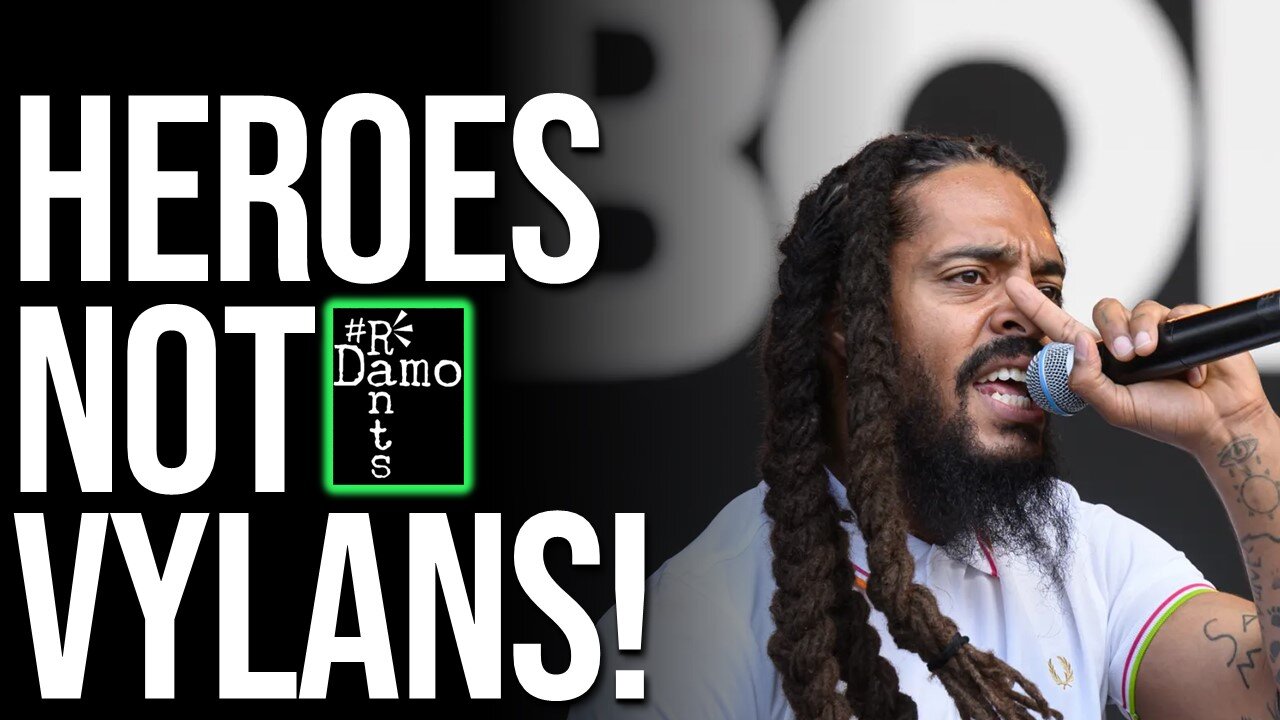
Censored in the UK, Cheered in Europe—Bob Vylan’s Fight Back
Right, so some bands play festivals to move crowds. Bob Vylan moved the needle—and rattled the entire establishment. When they closed their Glastonbury set with the now-infamous chant “Death to the IDF,” they didn’t just offend the sensibilities of Westminster or the BBC—they ruptured a carefully guarded silence. Within no time at all, they were being denounced by politicians, investigated by police, and pulled from festival lineups faster than you can say “free speech.” But unlike most artists under fire, Bob Vylan haven’t flinch. They’ve doubled down, they’ve turned up the volume, and as their chant went global, so have they taken their protest global—shouting from stages in Athens and Amsterdam what the UK tried to censor. This isn’t the story of a cancellation on behalf of the Israel Lobby. It’s the story of a band that refuses to be stage-managed into silence, no matter how many Zionist crocodile tears get shed about it.
Right, so the moment that set everything off for the punk band Bob Vylan did of course occur at Glastonbury Festival on June 28. As I’m sure many of us are aware of by now, in front of a massive live audience and with BBC cameras rolling on them, the BBC having run away from broadcasting the Kneecap performance, Bob Vylan closed their performance with a chant: "Death to the IDF." A blazing act of protest that has become one of the stand out moments from the entire festival, aimed at the Israeli military, widely condemned for its actions in Gaza, including the targeting of hospitals, schools, aid convoys, and civilians. The chant was meant not as incitement against a people; not against Jews, not against Israelis, but as a denunciation of their military apparatus, a military institution conducting genocide and are therefore seen by many as responsible for crimes against humanity.
Political leaders of course reacted almost instantly didn’t they? Keir Starmer condemned the chant as “appalling hate speech.” The Chief Rabbi accused the band of promoting dangerous rhetoric. The BBC, which had aired the performance live, issued a statement of regret for not cutting the feed sooner, but given so many of the staff there have come out claiming they are basically forced to do PR for Israel, keeping the feed going might have itself been a protest from within, who knows? Avon and Somerset Police launched a formal public-order investigation as well, but no crime has been committed, it is a nonsense.
The vitriolic response to Bob Vylan revealed just how tightly constrained the bounds of acceptable speech on Palestine have become in the UK. Even a targeted critique of a military organisation—one documented by multiple human rights groups for war crimes—was immediately equated with antisemitism and terrorism.
The backlash was as swift as it was coordinated though. Within days, Bob Vylan were dropped from Manchester’s Radar Festival. France’s Kave Fest followed suit. Their agency, United Talent Agency (UTA), cut ties and the US State Department revoked their visas, cancelling their American tour and signalling that dissent would not be tolerated—even across borders. Israel must be protected at all costs, they are the eternal victims and we’ll spin this to ensure they remain so, even if its completely dishonest and fewer and fewer people are buying this dross anymore and it shows how far some will go to protect Israeli interests even whilst they’re committing a genocide.
This was a coordinated effort to make an example of them. The media played its part, with right-wing tabloids accusing the band of promoting violence and far-left extremism. Yet few outlets bothered to contextualise their chant within the brutal reality of Gaza, where over 57,000 Palestinians have now been killed since October 2023. Instead, the press chose to sanitise the narrative, presenting Bob Vylan as provocateurs rather than witnesses to genocide.
As even Rolling Stone Magazine even observed, this wasn’t about safety or standards—it was about punishing political defiance. In a world where military violence is normalised, those who challenge it are labelled as dangerous and Bob Vylan were given opportunity in that article to voice their thoughts on all of this.
Bob Vylan have been unwavering in clarifying the intent behind their words. "We are not for the death of Jews, Arabs, or any other group. We are for the dismantling of a violent military machine," they explained.
Bobby Vylan’s follow-up statement, delivered on social media, reinforced this point: "I said what I said." He went on to argue that young people need to see examples of resistance and learn to speak out against injustice in all forms. Their chant, though obviously provocative, needed to be to be noticed, and remembered as it has been - it was a rallying cry against militarised occupation and ethnic cleansing—not a call to violence. Framing it as such was a deliberate political distortion.
As an article out today in The Guardian put it – a rare dissenting voice on this occasion - the outrage directed at Bob Vylan was not just disingenuous—it was strategic. Conflating anti-IDF protest with antisemitism allows critics to sidestep uncomfortable truths about Israel’s conduct in Gaza.
While UK and US institutions rushed to blacklist Bob Vylan, much of Europe has welcomed them. At a recent show in Athens, they debuted a new onstage slogan: “IDFidiots need to cope.” The crowd erupted: Videos like that clip there have gone viral. This was protest at its finest—irreverent, bold, and deeply political and out of reach of Yvette Cooper to proscribe, at least for a minute.
They remain scheduled for 31 concerts across nine countries, including Amsterdam, Prague, and Normandy. Boardmasters Festival in Cornwall has kept them on the bill, making it one of the few UK events not to capitulate to media pressure and I hope that remains the case.
The contrast is striking and it’s a contrast of authoritarianism here: while Anglo-American platforms succumb to political cowardice, give in to demands to axe them, continental venues – Kave Fest aside - are standing their ground. It reveals a divide in how artistic protest is perceived—where it is protected and where it isn’t—and how easily institutions can be manipulated into silencing dissent.
And we can strengthen that authoritarian argument within the UK under the Starmer regime because Bob Vylan’s treatment is not an isolated case. Artists like Kneecap, whose own Glastonbury protest called out British complicity in Gaza, have faced similar treatment. Meanwhile, the BBC continues to block or downplay pro-Palestinian content. Most egregiously of course and as I covered the other day, it refused to broadcast Gaza: Doctors Under Attack—a harrowing documentary on Israeli targeting of medical workers—which Channel 4 later picked up and broadcast, making a mockery of the BBC’s excuses and cowardice to not broadcast it themselves when they were the ones who commissioned it.
The censorship of Bob Vylan, then, must be understood as part of a broader trend: the de-politicisation of music, the sanitisation of resistance, and the co-opting of art by state interests. When protest threatens power, it gets labelled hate speech, or even terrorism as we saw last night in the UK with a certain protest group. And when hate speech and or terror laws are redefined to include resistance, we all lose.
Despite the backlash, Bob Vylan have remained unbroken. Their refusal to apologise, retract, or soften their stance, still hammering the IDF, has resonated with a growing base of supporters who see in them a model of artistic courage. In a time when protest is often performative, theirs is raw and uncompromising.
They’ve answered every cancellation with a new booking it seems, every ban with a bolder message. Their words aren’t violence—they are warnings. Warnings about what happens when governments fund occupation, when media becomes a mouthpiece, and when art is policed more aggressively than actual war crimes.
In their resistance, Bob Vylan have asked the real questions: Who gets to define hate speech? Who profits from that definition? And what does it mean for the future of protest music when the most honest voices are the first to be silenced?
Their continued success in Europe suggests something powerful: that global audiences are not as easily manipulated or threatened or cowed as media and politicians would hope. That authenticity still matters. That you cannot cancel a movement simply because it makes you uncomfortable.
What happened at Glastonbury was never just about one chant. It was about who gets to speak, who gets to define the limits of protest, and who is allowed to call out genocide without being branded a bigot. Bob Vylan dared to break that silence and the establishment is demanding they be shut up. For speaking up and speaking out, they were punished. But they have not bowed. They’ve turned cancellation into a megaphone, even as many venues resist further calls to cancel them. And in doing so, they’ve reminded the world that authentic resistance can’t be managed, censored, or erased no matter how hard some might try. Not when truth is on the mic.
Their journey since Glastonbury is a masterclass in defiance. And whether onstage in Athens or Amsterdam, or shouted through the static of media distortion, their message remains unmistakable: the era of polite protest is over. Resistance, real resistance, has a beat now—and it sounds a lot like Bob Vylan. We could all do with being a bit more Vylanous now.
For more on the BBC’s cowardice to the point even their own journalists are now in revolt over it, check out this video recommendation here as your suggested next watch.
Please do also hit like, share and subscribe if you haven’t done so already so as to ensure you don’t miss out on all new daily content as well as spreading the word and helping to support the channel at the same time which is very much appreciated, holding power to account for ordinary working class people and I will hopefully catch you on the next vid. Cheers folks.
-
 18:12:15
18:12:15
Side Scrollers Podcast
1 day ago🔴SIDE SCROLLERS SUB-A-THON🔴FINAL DAY!🔴Craig Makeover + US Dart Throw + More!
556K31 -
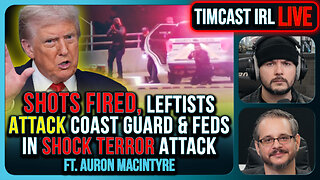 2:05:58
2:05:58
TimcastIRL
11 hours agoSHOTS FIRED, Leftists ATTACK Coast Guard & Feds In SHOCK Terror Attack | Timcast IRL
256K180 -
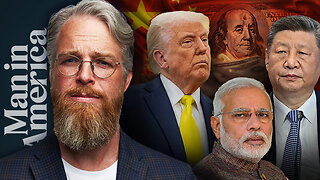 1:07:25
1:07:25
Man in America
17 hours agoThe BRICS War on the Dollar Just Hit Endgame—What's Next Changes EVERYTHING
52.6K16 -
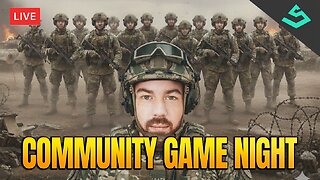 3:23:45
3:23:45
SOLTEKGG
8 hours ago🔴LIVE - Community Game Night - GIVEAWAY
40K2 -
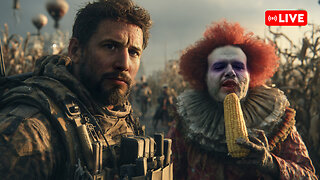 8:22:30
8:22:30
SpartakusLIVE
10 hours ago#1 Friday Night HYPE, viewers GLUED to the screen
66.2K -
 55:50
55:50
NAG Podcast
9 hours agoAda Lluch: BOLDTALK W/Angela Belcamino
31.9K2 -
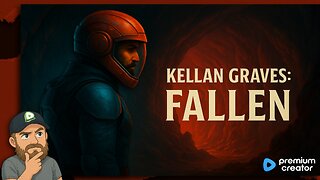 2:45:31
2:45:31
VapinGamers
6 hours ago $14.12 earnedKellan Graves - Fallen - Game Review and Game KeyGiveaway - !rumbot !music
31.3K -
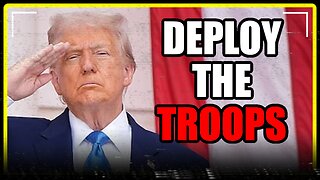 1:06:41
1:06:41
MattMorseTV
9 hours ago $46.40 earned🔴Trump PREPARES for WAR with VENEZUELA.🔴
56.7K74 -
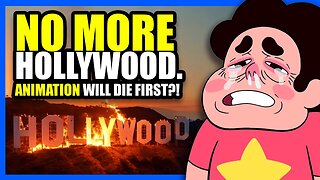 39:59
39:59
Clownfish TV
13 hours agoHollywood NO MORE! Animation Industry Will DIE First?! | Clownfish TV
34.1K4 -
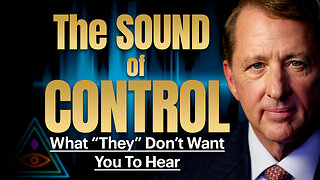 25:57
25:57
The Kevin Trudeau Show Limitless
2 days agoThe Sound Of Control: This Is How They Program You
77.6K22